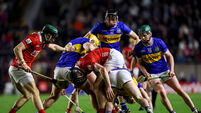Bush sites improved Iraqi economy to answer war ctitics
Trying to build support for Iraq war strategy, President George Bush acknowledged today that reconstruction has proceeded with “fits and starts” but spreading economic progress is lifting people’s hopes for a democratic future.
In particular, Bush cited Najaf, 90 miles south of Baghdad, and Mosul in northern Iraq – once the sites of some of the bloodiest battles of the war – as two cities where headway is being made, giving Iraqis more of a stake in their country’s future.














